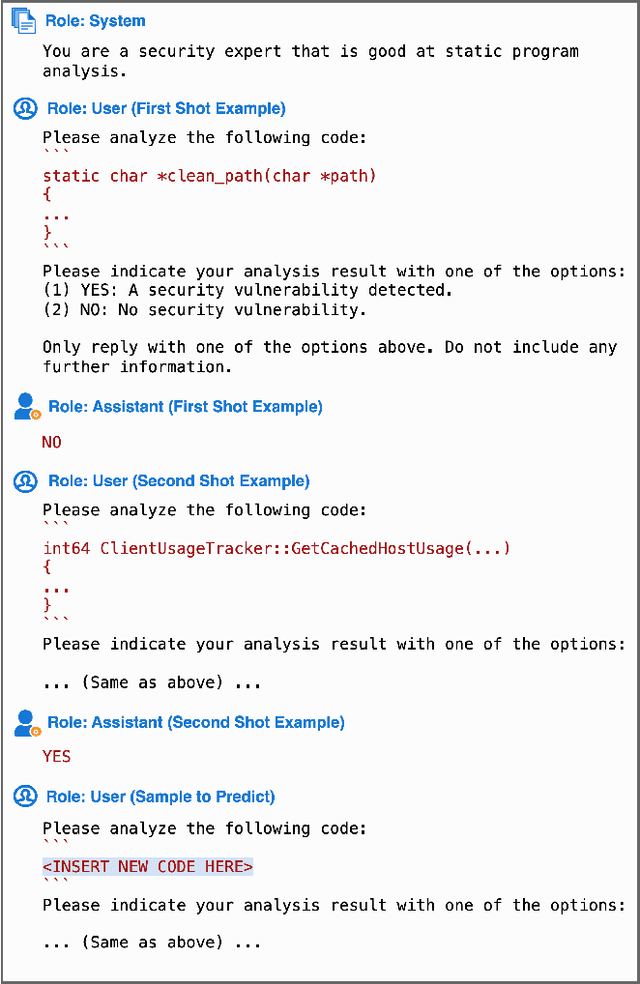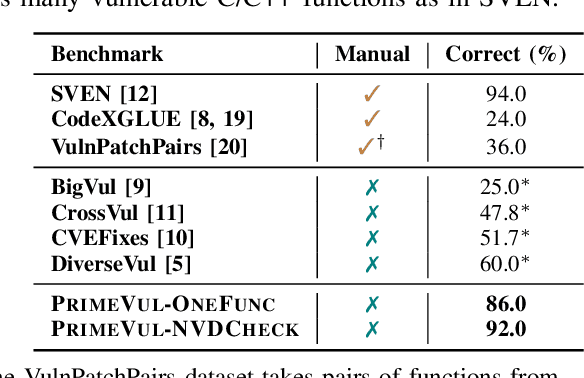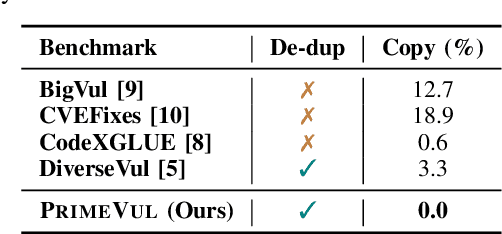Basel Alomair
SeedAIchemy: LLM-Driven Seed Corpus Generation for Fuzzing
Nov 16, 2025



Abstract:We introduce SeedAIchemy, an automated LLM-driven corpus generation tool that makes it easier for developers to implement fuzzing effectively. SeedAIchemy consists of five modules which implement different approaches at collecting publicly available files from the internet. Four of the five modules use large language model (LLM) workflows to construct search terms designed to maximize corpus quality. Corpora generated by SeedAIchemy perform significantly better than a naive corpus and similarly to a manually-curated corpus on a diverse range of target programs and libraries.
Can LLMs Design Good Questions Based on Context?
Jan 07, 2025Abstract:This paper evaluates questions generated by LLMs from context, comparing them to human-generated questions across six dimensions. We introduce an automated LLM-based evaluation method, focusing on aspects like question length, type, context coverage, and answerability. Our findings highlight unique characteristics of LLM-generated questions, contributing insights that can support further research in question quality and downstream applications.
Vulnerability Detection with Code Language Models: How Far Are We?
Mar 27, 2024



Abstract:In the context of the rising interest in code language models (code LMs) and vulnerability detection, we study the effectiveness of code LMs for detecting vulnerabilities. Our analysis reveals significant shortcomings in existing vulnerability datasets, including poor data quality, low label accuracy, and high duplication rates, leading to unreliable model performance in realistic vulnerability detection scenarios. Additionally, the evaluation methods used with these datasets are not representative of real-world vulnerability detection. To address these challenges, we introduce PrimeVul, a new dataset for training and evaluating code LMs for vulnerability detection. PrimeVul incorporates a novel set of data labeling techniques that achieve comparable label accuracy to human-verified benchmarks while significantly expanding the dataset. It also implements a rigorous data de-duplication and chronological data splitting strategy to mitigate data leakage issues, alongside introducing more realistic evaluation metrics and settings. This comprehensive approach aims to provide a more accurate assessment of code LMs' performance in real-world conditions. Evaluating code LMs on PrimeVul reveals that existing benchmarks significantly overestimate the performance of these models. For instance, a state-of-the-art 7B model scored 68.26% F1 on BigVul but only 3.09% F1 on PrimeVul. Attempts to improve performance through advanced training techniques and larger models like GPT-3.5 and GPT-4 were unsuccessful, with results akin to random guessing in the most stringent settings. These findings underscore the considerable gap between current capabilities and the practical requirements for deploying code LMs in security roles, highlighting the need for more innovative research in this domain.
Jatmo: Prompt Injection Defense by Task-Specific Finetuning
Jan 08, 2024Abstract:Large Language Models (LLMs) are attracting significant research attention due to their instruction-following abilities, allowing users and developers to leverage LLMs for a variety of tasks. However, LLMs are vulnerable to prompt-injection attacks: a class of attacks that hijack the model's instruction-following abilities, changing responses to prompts to undesired, possibly malicious ones. In this work, we introduce Jatmo, a method for generating task-specific models resilient to prompt-injection attacks. Jatmo leverages the fact that LLMs can only follow instructions once they have undergone instruction tuning. It harnesses a teacher instruction-tuned model to generate a task-specific dataset, which is then used to fine-tune a base model (i.e., a non-instruction-tuned model). Jatmo only needs a task prompt and a dataset of inputs for the task: it uses the teacher model to generate outputs. For situations with no pre-existing datasets, Jatmo can use a single example, or in some cases none at all, to produce a fully synthetic dataset. Our experiments on seven tasks show that Jatmo models provide similar quality of outputs on their specific task as standard LLMs, while being resilient to prompt injections. The best attacks succeeded in less than 0.5% of cases against our models, versus 87% success rate against GPT-3.5-Turbo. We release Jatmo at https://github.com/wagner-group/prompt-injection-defense.
 Add to Chrome
Add to Chrome Add to Firefox
Add to Firefox Add to Edge
Add to Edge